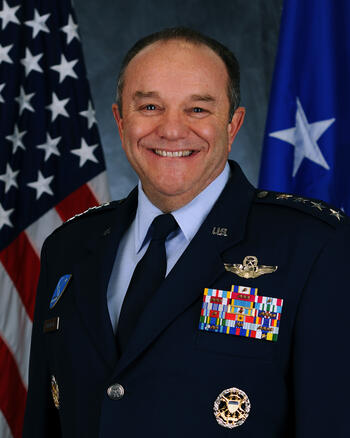Countering Violent Extremism
Abstract
Under Secretary Sewall will deliver remarks on Countering Violent Extremism, the U.S. Government’s comprehensive approach for preventing the spread of ISIL and emergence of new terrorist threats. The Under Secretary will describe how the evolution of violent extremism since the 9/11 attacks necessitates a “whole of society” approach to prevent people from aligning with terrorist movements and ideologies in the first place. Drawing on recent travel to Indonesia, India, and Egypt, the Under Secretary will describe the vital role of actors outside government in this approach, including women, youth, religious leaders, businesses, and researchers. She will also elaborate on new steps the U.S. Government is taking to intensify its CVE efforts around the world. The Under Secretary will also take questions from the audience.
Speaker bio

Dr. Sarah Sewall is the Under Secretary for Civilian Security, Democracy, and Human Rights at the U.S. State Department, and is a longtime advocate for advancing civilian security and human rights around the world. Dr. Sewall was sworn in on February 20, 2014. She serves concurrently as the Special Coordinator for Tibetan Issues. Over the previous decade, Dr. Sewall taught at the Harvard Kennedy School of Government, where she served as Director of the Carr Center for Human Rights Policy and directed the Program on National Security and Human Rights.
Dr. Sewall has extensive experience partnering with the U.S. armed forces around civilian security. At the Kennedy School, she launched the MARO (Mass Atrocities Response Operations Project) to assist the U.S. military with contingency planning to protect civilians from large-scale violence. She was a member of the Defense Policy Board and served as the Minerva Chair at the Naval War College in 2012. She also led several research studies of U.S. military operations for the Department of Defense and served as the inaugural Deputy Assistant Secretary of Defense for Peacekeeping and Humanitarian Assistance in the Clinton Administration. Prior joining the executive branch, Dr. Sewall served for six years as the Senior Foreign Policy Advisor to U.S. Senate Majority Leader George J. Mitchell and earned a Ph.D at Oxford University, where she was a Rhodes Scholar.
This event is co-sponsored by Stanford in Government and CISAC.
[[{"fid":"222126","view_mode":"crop_870xauto","fields":{"format":"crop_870xauto","field_file_image_description[und][0][value]":"Sewall Flyer","field_file_image_alt_text[und][0][value]":"","field_file_image_title_text[und][0][value]":"","field_credit[und][0][value]":"","field_caption[und][0][value]":"","field_related_image_aspect[und][0][value]":"","thumbnails":"crop_870xauto"},"type":"media","attributes":{"width":"870","class":"media-element file-crop-870xauto"}}]]


